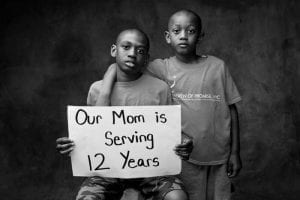According to a report by The Pew Charitable Trusts, more than 2.7 million children had a parent in jail or prison in 2009″ (Ferguson, 2015).
Having a parent in prison can have an impact on a child’s mental health, social behavior, and educational prospects. The emotional trauma that may occur and the difficulties of having a disruption in family life can also be compounded by the social stigma that some children may face as a result of having a parent in prison. Some incarcerated parents face termination of parental rights because their children have been in the foster care system beyond the time allowed by law.
Children of incarcerated parents may also face several other challenging circumstances. They may have experienced trauma related to their parent’s arrest or experiences leading up to it. These children may have also witnessed abuse, drug use, and alcohol use, which can affect a child’s mental health. Nearly 60% of all children and youth have either been witnesses to or experienced some sort of violence. Because of this, it is essential for these young people to become engaged in some kind of counseling or therapy. It is essential for the incarcerated parent and children to receive support during and after incarceration. Contact between the child and incarcerated parent during and after prison can help in effectively reuniting the family.
References
Youth.Gov. (n.d.). Children of incarcerated parents. Retrieved from https://youth.gov/youth-topics/children-of-incarcerated-parents.
Ferguson, C. (2015). Kids with parents in prison often deal with untreated trauma. Retrieved from https://www.buzzfeednews.com/article/catferguson/parents-in-prison.

